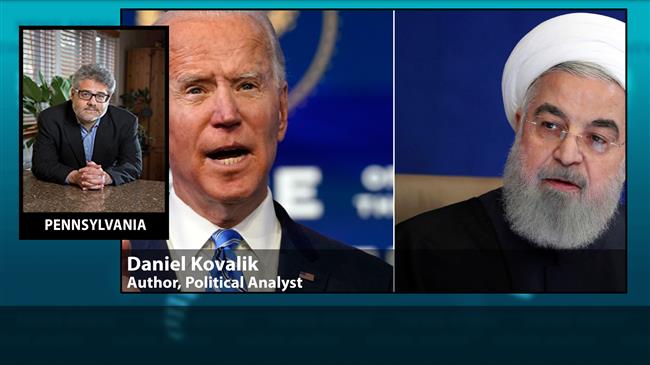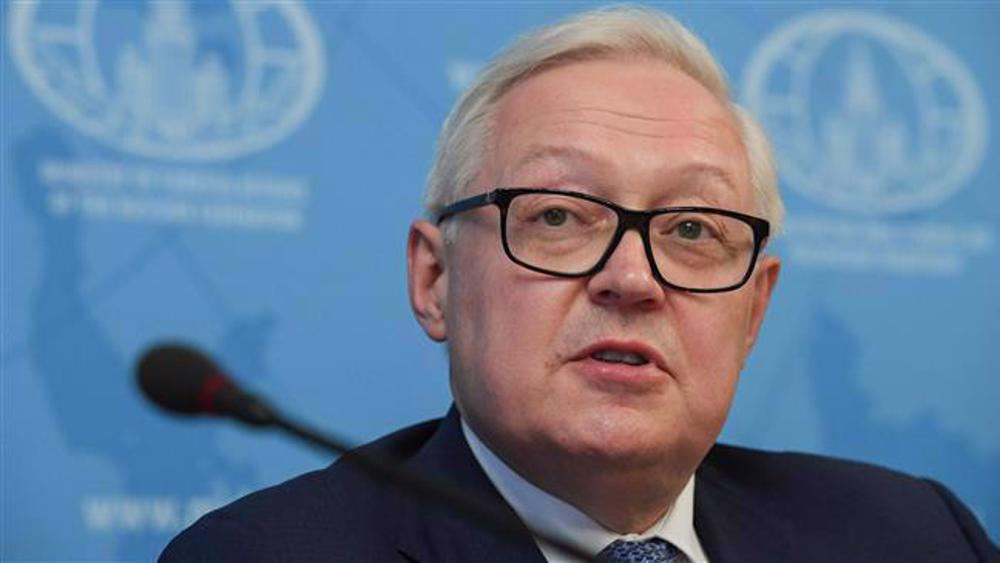Biden admin insists on Iran’s full compliance for return to JCPOA
The administration of newly-elected US President Joe Biden has expressed contradictory remarks about its return to the 2015 Iran nuclear deal, saying Tehran must make the first move and resume full compliance before Washington will be ready to rejoin the pact.
State Department spokesman Ned Price made the comment on Tuesday after Iranian Foreign Minister Mohammad Javad Zarif said the European Union could “coordinate” the process of revival of the landmark deal, officially known as the Joint Comprehensive Plan of Action (JCPOA).
"If Iran comes back into full compliance with its obligations under the JCPOA, the United States would do the same," Price told reporters in Washington.
The US administration will be "consulting with our allies, consulting with our partners, consulting with Congress before we're reaching the point where we're going to engage directly with the Iranians and (be) willing to entertain any sort of proposal," he added.
Price also said the US would try to extend the JCPOA by including Iran’s ballistic missile program in future negotiations.
The top Iranian diplomat had earlier suggested that one way to bridge the impasse was for an EU official to “synchronize” or “coordinate” efforts by Iran and the US to return to full compliance with the deal.
"The United States needs to come back into compliance and Iran will be ready immediately to respond. The timing is not the issue," Zarif told CNN International.
“Clearly there can be a mechanism to basically either synchronize [Iran and US moves] or coordinate what can be done,” he added. “The JCPOA has a built-in mechanism, which is the joint commission. The joint commission has a coordinator … who can sort of choreograph the actions needed to be taken by Iran and the US.”
I told @cnni ’s @CAmanpour: US left the JCPOA & violated it. Iran took remedial measures.
— Javad Zarif (@JZarif) February 2, 2021
US should return to compliance. Iran will then immediately reverse remedial measures. @JosepBorrellF—Joint Commission Coordinator—can choreograph the moves in consultation with Iran & US. pic.twitter.com/HwpfxpA1G7
Moreover, a spokesman for EU foreign policy chief Josep Borrell said he was "working extremely hard to get the JCPOA back on the rails."
Peter Stano, the spokesman, said, "We're talking to the American administration to see if those sanctions could be lifted, to see if we can have full implementation of the JCPOA.”
Meanwhile, Robert Malley, US special envoy for Iran, said on Tuesday that Washington seeks to remove the so-called "maximum pressure" campaign against the Islamic Republic.
Malley told the Italian daily newspaper Corriere della Sera that conferring on a broader agreement would be on the agenda only after returning to JCPOA.
The American envoy also assumed that the Biden government will remove the maximum pressure on Iran and strives to put pressure on Tehran through diplomacy.
The landmark deal was initially signed between Iran and the six countries — the United States, Germany, France, Britain, Russia and China — and was held up in the form of UN Security Council Resolution 2231 shortly afterwards.
Former US President Donald Trump unilaterally withdrew America from Iran’s nuclear deal in 2018. Under the deal, Tehran had agreed to limit its uranium enrichment in exchange for the lifting of economic sanctions.
After the US then ramped up sanctions, Iran gradually and publicly abandoned the deal’s limits on its nuclear development.
Biden, who was vice president when the deal was signed during the Obama administration, has said he hopes to return the US to the deal. But new US Secretary of State Antony Blinken said Wednesday the US will only return to the nuclear deal once Tehran honors its nuclear commitments.
Tehran insists that a US return to the deal would be meaningless unless the unilaterally-imposed US sanctions were lifted in the first place.
VIDEO | Yemenis praise the military for its successful operations against Israel
VIDEO | Israel continues to bomb Gaza homes
VIDEO | An insider's view of the country: Meybod City in Yazd
‘All wars have rules. All of those rules have been broken’ by Israel
VIDEO | Report flags India’s violation of rights of Rohingya detainees
Turkey's foreign minister meets Syria's de facto leader in Damascus
VIDEO | US Syria plots
'Next to impossible' to rescue patients from Gaza's Kamal Adwan Hospital: Director




















 This makes it easy to access the Press TV website
This makes it easy to access the Press TV website